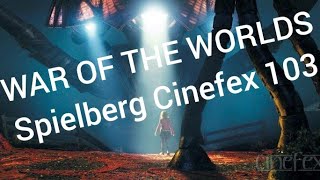Understanding the War of the Worlds and Its Impact

Introduction to War of the Worlds
The ‘War of the Worlds,’ penned by H.G. Wells in 1898, is a seminal work of science fiction that still resonates profoundly in contemporary literature and media. The story of Martians invading Earth offers a mirror reflecting societal fears, technological anxieties, and the implications of colonialism. As humanity grapples with increasingly relevant themes of survival and extraterrestrial encounters, the narrative continues to inspire adaptations across various platforms.
Setting the Scene: Plot Overview
The narrative follows an unnamed protagonist in late 19th-century England, who witnesses the onset of a Martian invasion. The Martians, possessing advanced technology, wreak havoc, prompting widespread panic and societal collapse. Wells’ work is not merely a thrilling tale of alien invasions; it serves as a cautionary tale about the dangers of unchecked progress and the fragility of human civilization.
Modern Adaptations and Significance
In recent years, ‘War of the Worlds’ has seen numerous adaptations, ranging from films to television series. The 2005 film directed by Steven Spielberg added a contemporary touch to Wells’ classic, amplifying the urgency of its themes in the context of post-9/11 anxieties. More recently, the BBC and other networks have produced television dramas that reimagine the story through modern lenses, addressing current issues such as climate change and global pandemics. These adaptations keep the narrative alive, engaging new audiences and provoking discussions on relevant themes.
Cultural Feedback and Future Perspectives
The ‘War of the Worlds’ continues to inspire literary analysis and cultural commentary. Scholars and fans alike explore its significance concerning societal fears and the ethical dilemmas posed by scientific advancements. As we advance further into an age defined by space exploration, AI, and looming existential threats, H.G. Wells’ tale serves as a poignant reminder of the delicate balance between innovation and caution. Future adaptations may incorporate contemporary issues, ensuring the story remains as impactful and thought-provoking as ever.
Conclusion: A Timeless Narrative
The relevance of ‘War of the Worlds’ transcends time, allowing it to maintain a unique place in cultural discussions. As we push boundaries in science and technology, the questions posed by Wells’ narrative about humanity’s place in the universe become increasingly vital. Engaging with this classic can illuminate our current path, prompting readers to consider both the dangers of progress and the resilience of the human spirit.









